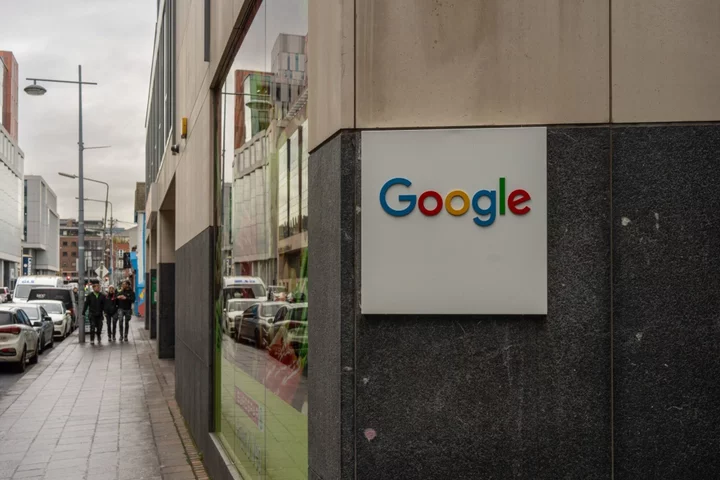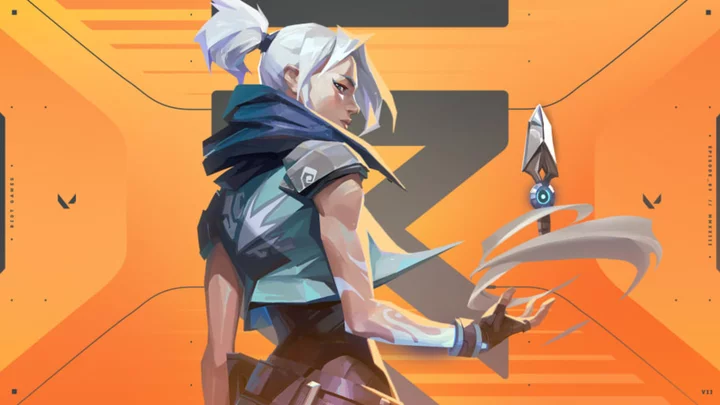New lawsuits filed by the US Securities and Exchange Commission against Coinbase Global Inc. and Binance Holdings Ltd. have raised serious questions about the future of crypto.
As digital assets face mounting regulatory pressure and other market headwinds, they have also been dethroned as the latest technology fad. When OpenAI launched its ChatGPT bot in November, it paved the way for practical uses of artificial intelligence. Since then AI has captured the attention of founders and investors — the same folks that fueled the crypto boom.
AI may have stolen the limelight, but some crypto enthusiasts say it can provide new opportunities to the blockchain industry.
“You may actually see a situation where AI is sort of a catalyst to rush back to blockchain,” said Adam Struck, founder and managing partner of investment fund Struck Crypto, which has been diving further into AI since the ChatGPT bot release.
Blockchain technology can bring greater transparency and decentralization to AI, which can be extremely opaque in terms of what data is being used to train models, according to Alex Felix, managing partner and chief investment officer at crypto VC firm CoinFund.
Recently, CoinFund backed Tools for Humanity. The crypto startup cofounded by OpenAI’s Sam Altman, which raised $115 million, shows a real use case for crypto in AI, said Felix.
Tools for Humanity, which developed a digital currency called Worldcoin, created a small orb that scans people’s eyeballs in order to generate a unique ID for that individual based on blockchain, giving them a digital “proof of personhood,” which when combined with Worldcoin can also be used to facilitate secure payments.
“For us, it started with where’s the world going with AI? And the way to solve that was crypto,” said Tiago Sada, Tools for Humanity’s head of product.
Felix compares the current AI craze to crypto’s initial coin offering boom in 2017, when investors rushed to snap up random crypto tokens, many of which were scams. But he said that this time around, it’s easier to vet new projects and determine whether someone has deep enough expertise in AI.
“It’s harder to fake credibility because the circles are so small,” Felix said.
Sussing Out Hackers
Just as blockchain can bring more transparency to AI, the tech can bolster crypto by improving ways digital-asset platforms sort data, safeguard information and interact with users, according to some crypto supporters.
Hackers have been able to drain millions of dollars from blockchain protocols. AI bots can curtail the swathe of cyberattacks plaguing decentralized finance, according to Struck.
“You could essentially do very, very large amounts of what’s called pen testing or penetration testing by just having these bots simulate attacks,” he said, adding that this testing could suss out vulnerabilities in smart contract code that hackers can manipulate to siphon cash.
Bots can also be used to moderate content in order to filter out spam and scams on messaging platforms like Telegram, Discord, Signal, WeChat and WhatsApp, Struck said. While this kind of benefit isn’t restricted to crypto, it is important for an industry where many scams originate on social media.
“So many of the users are concentrated in these messaging apps,” he said.
In addition to protecting investors from getting swindled, many in the industry see other ways for AI to make it easier for users to interact with crypto.
Solana Labs, which developed the Solana blockchain, launched a ChatGPT plugin in May “to make the user experience better, simpler for people to understand what is going on in blockchain,” said Tal Tchwella, head of product at Solana Labs.
Crypto has been criticized for being too unwieldy for regular consumers, but the ChatGPT plugin guides users through blockchain transactions in a conversational way.
In a virtual demonstration, Tchwella showed how a customer can connect their crypto wallet and ask the bot to show them nonfungible tokens they can afford or a specific collection. After scrolling through options, customers can ask the bot to help them purchase a NFT. The bot then generates a QR code that customers can scan to complete the sale.
“AI is going to impact every area, every sector, every industry, and we’re just trying to embrace it,” Tchwella said.
Avoiding the Hype
Still, other crypto companies have been hesitant to jump fully on the AI bandwagon, citing its potential dangers. Derivatives exchange Bitget nixed a ChatGPT integration because of concerns over users getting misleading information and false facts to their queries.
Tools for Humanity has been lampooned for its eye-scanning tech and questioned on whether the sensitive biometric data it collects is actually protected.
While The Graph, an indexing protocol, has been leveraging AI and machine learning for more than two years to make blockchain data easier to search and use, it does not want its GRT currency to be classified as an AI token, according to Tegan Kline, CEO of Edge & Node, the startup that created the platform.
Unlike other crypto companies that have swiftly pivoted to AI to capitalize on the hype, she said Edge & Node prefers to be known first and foremost as a blockchain startup because there are still “hardships” around AI, including how the technology makes it harder to tell what’s true online.
Meanwhile, “a lot of people are putting AI into their pitch decks to attract more venture capital funds,” Kline said.
--With assistance from Rheaa Rao and Sam Hall.









